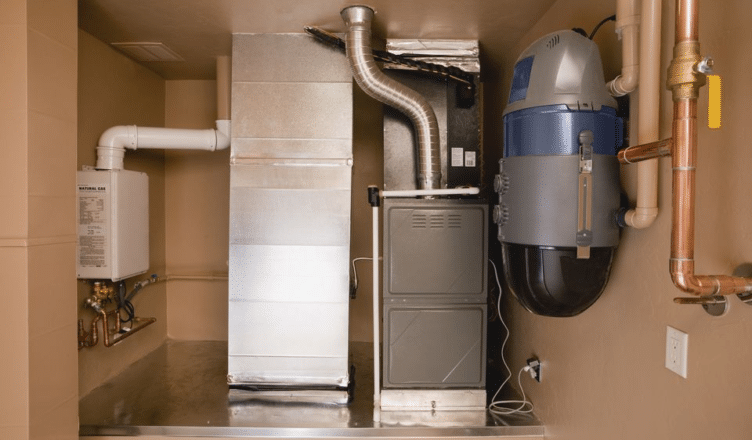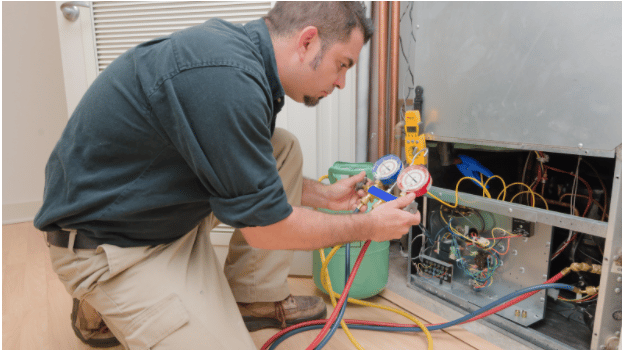HRV vs ERV, which is better? Previously, most homeowners could suffer the challenge of leaking humid air and heat after constructing and finishing their houses. It was a significant problem for families and homeowners until the introduction of Energy Recovery Ventilation (ERV) and Heat Recovery Ventilation (HRV) systems.
These systems came in to seal your houses and maintain the desired indoor air quality. Every home or building requires natural or mechanical ventilation to prevent the ‘old school’ leaking or heat and humid air.
These ventilation systems have become popular in countries across the poles where people face extreme climatic conditions. However, since the rise of these ventilations, many individuals still can’t figure the difference between these two. Therefore, let’s look-see the differences between HRV vs ERV systems.
Every homeowner strives to keep their home space warm by heating the incoming cold winter air during the chilly winter seasons. When summer comes in, no one can stop the hot, humid air from entering the house.
All you can do is adjust the room temperature by cooling your house and maintaining a specific desired temperature. Some people in Canada are steadily installing ERVs and HRVs, and it’s widely spreading in many polar countries.
Roles of a Mechanical Ventilation System
Introducing fresh oxygen
As we conduct certain activities around our homes, we get to breathe and exhaust the oxygen composition present in the air. In an airtight house lacking proper ventilation, you’re probably going to have an unpleasant experience such as a stuffy room.
Purifying air
Proper ventilation in your home helps get rid of any toxic gases afloat. These gases might be produced by our bodies during excretion or introduced to the house by building materials if the building has undergone construction recently.
Getting rid of excess humidity
These systems extract excess humid air produced in the house due to our normal day-to-day activities. It helps lengthen the house’s durability, efficient heating, and control mildew and mould growth on surfaces.
Filtration process
The two mechanical ventilations contain an inbuilt filter meant to trap debris, insects, and pollen grains. The impurities are trapped when the system takes in air from the room during circulation.
Air distribution
Usually, the HRV and ERV systems are connected to a house’s ductwork, thus taking part in the intake and distribution. In some instances, these systems might be connected to your central heating and cooling system.
Distinguishing between ERV vs HRV
Heat Recovery Ventilation (HRV)
This system uses the exhausted external air in the room to heat the incoming new air. The HRV limits the energy required to heat fresh air outdoors, thus saving on heating costs and energy bills.
You should be aware that the incoming fresh air and exhausting air use different passages, thus enhancing heat transfer through conduction. Every HRV has a specific efficiency rate which defines the amount of energy preserved when the system is running.
When buying your Heat Ventilation Recovery system, you’ll have to consider the efficiency rate and the ultimate life cycle of the unit.
Energy Recovery System (ERV)
ERVs are a little more complex than HRVs. Just like Heat Recovery Ventilations, this system captures some humidity in the air. This ventilation system comes in handy during the winter season since it carries humidity from exhausted old air into the incoming air.
The system maintains the indoor humidity levels at a particular average value. It extracts moisture from outdoors air before mixing with indoors exhausted air and into the air return vents. Limiting the quantity of air entering your air conditioning device helps preserve some energy when the system is working.
Choosing Between the Two Ventilation Systems
When selecting between HRV vs ERV, the perfect choice depends on the type of climate you’re experiencing in your residential area. If your humidity level is above 60% during winter, we recommend you go for a Heating Recovery Ventilation.
The HRV will be responsible for the removal of extra moisture from the air. Otherwise, you can purchase an ERV if your house is usually dry during winter. The Energy Recovery system is specialized and adapted to maintain humidity in the air.
During the summer season, using an HRV will only raise the moisture content in your home. It is where the ERV comes in handy since it’s most efficient in hot and humid areas. The Energy Recovery System will help you reduce air conditioning costs.
Therefore, you’ll have to consider your local climatic conditions first before concluding on the type of ventilation system that will be suitable for your home.
Factors to Consider When Choosing Between ERV And HRV Systems
Lastly, we will conclude by looking at what you should consider when purchasing the proper ventilation system. The factors include:
-
The family size occupying your home
An HRV is a perfect choice for a large family which produces a high moisture level during their day-to-day activities. On the other side, a house with fewer family occupants will create less humidity, thus making an ERV the best ventilation choice.
-
House size/dimensions
Typically, HRV is the best ventilation option for medium-sized or small-sized houses whereby air moisture is steadily accumulated. An ERV will, however, offer better ventilation in larger rooms where the air is seemingly drier.
-
Heating method
In a home using wood as its fuel and heating source, an ERV is a perfect choice since the rooms are relatively drier.
HRV VS ERV – Conclusion
When choosing between an HRV and ERV, you’ll have to check out the installation procedures then contract a qualified ventilation operator to set up and calibrate the ventilations properly.
After reading through the differences between ERV and HRV, you can now easily select and decide the most suitable ventilation system for your home. Install either of the ventilation systems in your house to prevent moisture leakages and improve fresh airflow in and around your house as well.
The HRV vs ERV will prevent your house from leaking and purify the air, thus providing a fresh and pleasant airflow in your home.












